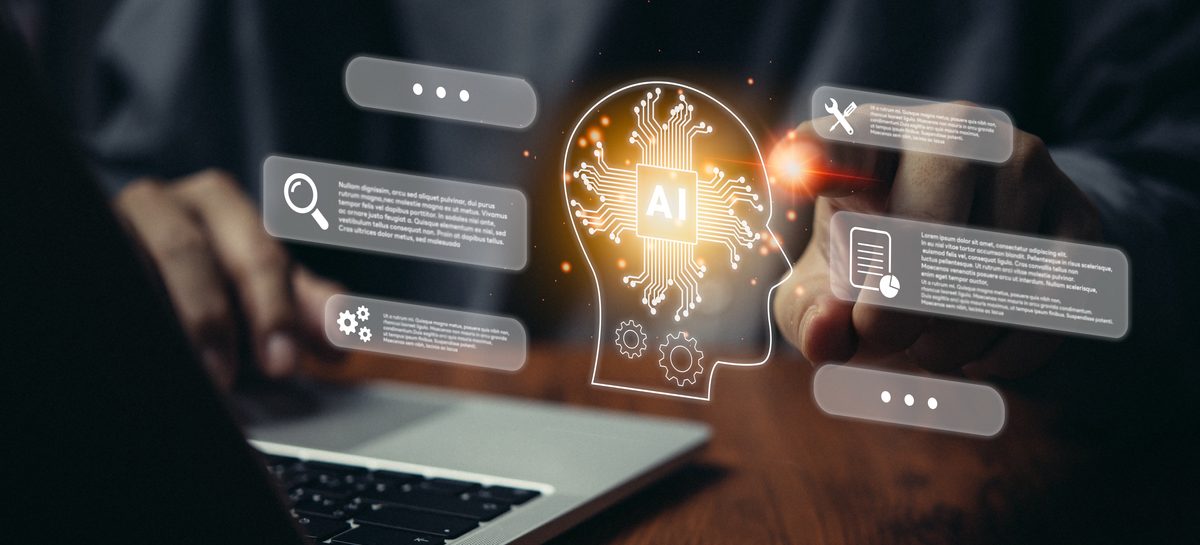|
Getting your Trinity Audio player ready...
|
You have likely heard the phrase, “Artificial intelligence won’t replace you, but those who use it will replace those who don’t.” This comes from a Stanford and MIT study that showed AI tools boosted worker productivity at a tech company by 14%. A July 2023 study by Nielsen Norman Group, a user experience research and consulting firm, showed generative AI (like ChatGPT) improved user performance by 66%, with more complex tasks having bigger gains.
We often don’t hear another finding from the Stanford/MIT study: “AI tools benefit from the best and brightest workers training the AI itself by providing examples of best practices, which the technology then turns into recommendations for other workers to apply.”
In other words, a tool is only as powerful as the knowledge of the professional who uses it.
This article is part of a five-part series on AI in Career Development. Watch for more on CareerWise in the days to come, or subscribe to our CareerWise Weekly newsletter to receive the special themed issue.
Although anyone can use AI tools and generative AI, career services providers bring unique expertise to the integration of these tools into the career development process – from career exploration to interview preparation. For example, if we use an AI assessment tool, we first tap into our client’s existing wisdom about their interests, skills and values before sharing assessment results.
As career practitioners, we must create frameworks to use AI in career services that are aligned with career development. This will lead the way for clients and other service providers to use the technology to help produce the best results for jobseekers. This article will explore how a career practitioner can approach AI differently based on their career development expertise.
A different consideration for prompt writing
Articles abound that speak to the importance of using roles – “act like a career coach” – in generative AI prompts. However, roles aren’t the only consideration when prompting generative tools in career development processes. The power of career development lies in guiding clients to increased self-awareness. Assessments and ideas from generative tools can complement self-awareness but can’t replace it.
When a layperson uses ChatGPT, they might ask it to describe a potential dream job for them based on their resume. When career practitioners use generative AI for career exploration, it starts with employing coaching skills to identify the client’s motivated skills and interests. Career practitioners can draw on this foundation of client self-awareness to create prompts for an AI tool to generate career options. Coaching skills come back into play to guide research and decision-making. This builds ownership and motivation for clients to keep moving through a challenging process.
Tapping into the power of client voice
Another point marketers make about generative AI tools is that they can write in a user’s voice. Users can put articles they’ve authored or transcripts from presentations into ChatGPT, and it will provide language to describe their voice and generate content in their style. But does that really give the author confidence in telling their story?
For instance, generative AI might describe the style and tone of an article as “educational, empathetic and inspirational.” However, it is not a replacement for the work of coaching clients to uncover their own voice and build confidence in their professional abilities.
“Assessments and ideas from generative tools can complement self-awareness but can’t replace it.”
When jobseekers learn to tell their own stories, it has a deeper benefit than generating resume content. They connect their past actions and accomplishments to the requirements of their desired job, building confidence and agency. Career practitioners can support clients to articulate their own narrative, and then use AI tools to research the client’s audience and target role to prioritize relevant stories. From there, career practitioners can guide clients to articulate their career stories, identify themes and increase awareness of their unique style, voice and strengths.
Once a client has created a written draft of their career stories, ChatGPT can condense or rework them to create content for a resume or LinkedIn profile. Clients will need to edit these generated pieces to ensure maintenance of client specifics and voice. Although generative tools can write stories, they can’t write a client’s stories – and fiction doesn’t work on resumes and LinkedIn profiles.
Using job search tactics to transform mindset
Any article or generative AI can tell a jobseeker how to job search – but a lack of awareness of the “how to” is usually not what keeps clients from making progress. AI coaches act more like advisors, answering questions and sharing advice in the form of leading questions. These can be helpful in the early stages of career exploration, job search strategy, interview preparation or to address questions between sessions. However, AI hasn’t replicated the uniquely human skill of guiding a client to turn roadblocks into breakthroughs.
Career practitioners can use generative search tools to research job targets and companies or put together a job search strategy. Through their work with clients, they can identify the roadblocks created by limiting beliefs and the failures of confidence that prevent clients from taking action. Then, they can coach clients to turn the “how to” into “how do I,” tapping into a client’s wisdom about their own life and skills to co-create customized strategies. While AI tools can generate information to inform hands-on coaching work, they can’t replace it.
Leading the way in learning new skills
Career practitioners often work with clients who feel left behind and overwhelmed by the need to reskill and adapt as they look for new work. Now, we find ourselves in the same situation. We can demonstrate the courage and resilience we’ve encouraged clients to develop during career transition work.
We must work ethically with AI tools, protecting client information and using the systems within our career development expertise. We also need to recognize that over-focusing on limitations can be a defence mechanism when we’re faced with adopting new technologies. As we evaluate whether a tool will work for a client’s situation, how can we identify where our fears and desire to be the expert might bias us against a tool?
Thankfully, there is not a “right” way to use these tools. If we experiment and work within our existing career development framework, we can add additional value for clients, improve their outcomes and increase the efficiency of our work. The result is spending less time researching and providing information to free up time for the uniquely human skill of coaching – uncovering fears and raising awareness to facilitate behaviour change and transformation.




